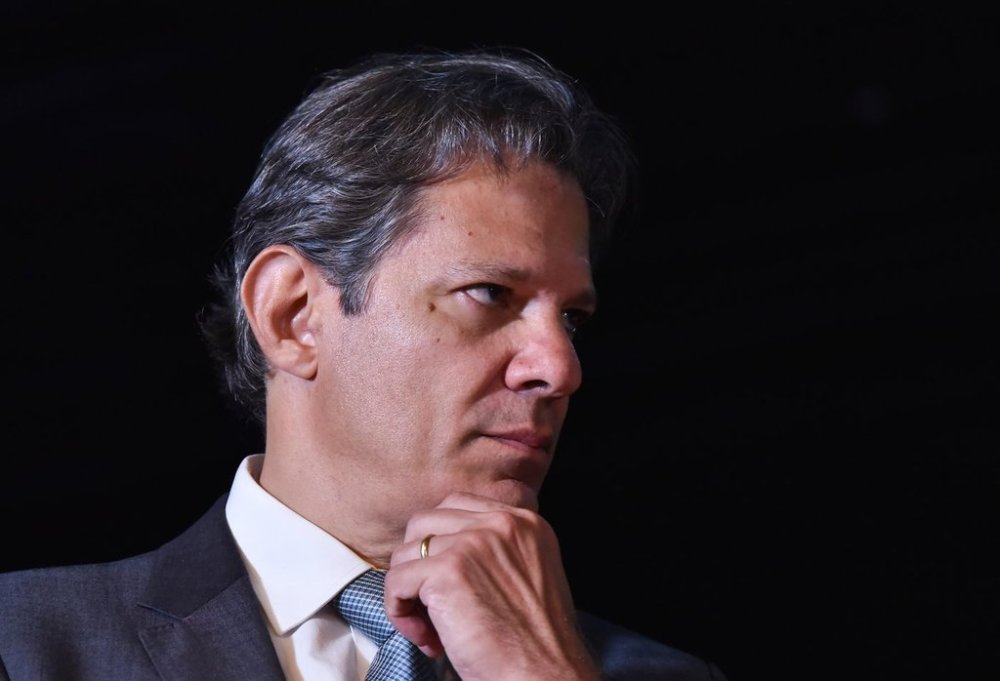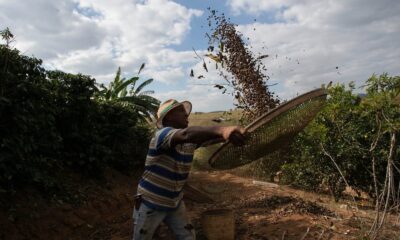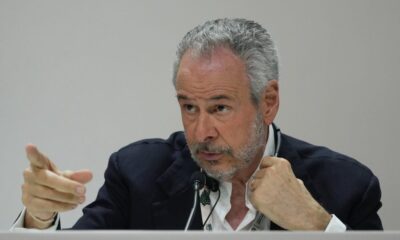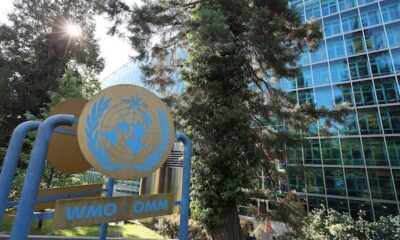World
Brazilian Police Target $4.8 Billion Tax Evasion in Fuel Sector

Brazilian police have initiated a significant operation aimed at dismantling a vast tax evasion and money laundering scheme within the fuel sector. Launched on Thursday, the operation targets a group identified as the largest tax debtor in Brazil, which owes over 26 billion reais (approximately $4.8 billion). Authorities executed 126 search and seizure warrants across five states, focusing on both individuals and companies suspected of involvement.
According to Brazil’s Federal Revenue, the organization utilized its own companies, investment funds, and offshore entities to conceal and protect its profits. While officials have not disclosed specific names of those being investigated, local media indicates that the operations may involve Grupo Fit, a notable fuel refinery. Grupo Fit has yet to respond to requests for comment regarding the investigation.
Finance Minister Fernando Haddad stated that these actions are part of a broader crackdown on illicit activities linked to Brazil’s fuel supply chain. The crackdown follows an incident in August, when authorities flagged 40 investment funds in the fuel sector believed to have been used to conceal assets for members of the First Capital Command (PCC), Brazil’s most notorious organized crime group.
Founded in 1993 within São Paulo’s Taubate Penitentiary, the PCC has expanded its operations from advocating for prison reform to orchestrating drug trafficking and extortion schemes. Over recent years, the group has diversified its investments into various illegal markets. Haddad noted that investigations have uncovered a pattern of capital flight, including the establishment of investment funds in the United States.
Federal authorities reported identifying more than 15 U.S.-based offshore entities that have funneled approximately 1 billion reais (around $186 million) back to Brazil, primarily for purchasing equity stakes and real estate. Money laundering operations have been traced to Delaware, which Haddad described as “a tax haven in the United States,” facilitating what he termed a “serious international triangulation scheme.”
One of the latest operations reportedly involved 1.2 billion reais (about $223 million) sent to funds in Delaware. According to Haddad, the process operates as follows: loans are issued to these funds—loans that are suspected of never being repaid—and the money subsequently returns to Brazil as apparently legitimate investments in economic activities. “But the money sent abroad is not legitimate,” he emphasized.
Haddad has committed to working with President Luiz Inácio Lula da Silva to enhance international cooperation with the United States in combating organized crime and money laundering, especially as tariff negotiations continue with U.S. President Donald Trump.
This ongoing investigation highlights the complexities of financial crime within Brazil and the significant efforts being taken by authorities to address these challenges in the fuel sector.
-

 Politics3 weeks ago
Politics3 weeks agoSecwepemc First Nation Seeks Aboriginal Title Over Kamloops Area
-

 World4 months ago
World4 months agoScientists Unearth Ancient Antarctic Ice to Unlock Climate Secrets
-

 Entertainment5 months ago
Entertainment5 months agoTrump and McCormick to Announce $70 Billion Energy Investments
-

 Lifestyle4 months ago
Lifestyle4 months agoTransLink Launches Food Truck Program to Boost Revenue in Vancouver
-

 Science5 months ago
Science5 months agoFour Astronauts Return to Earth After International Space Station Mission
-

 Technology3 months ago
Technology3 months agoApple Notes Enhances Functionality with Markdown Support in macOS 26
-

 Top Stories2 months ago
Top Stories2 months agoUrgent Update: Fatal Crash on Highway 99 Claims Life of Pitt Meadows Man
-

 Lifestyle2 months ago
Lifestyle2 months agoManitoba’s Burger Champion Shines Again Amid Dining Innovations
-

 Politics4 months ago
Politics4 months agoUkrainian Tennis Star Elina Svitolina Faces Death Threats Online
-

 Sports5 months ago
Sports5 months agoSearch Underway for Missing Hunter Amid Hokkaido Bear Emergency
-

 Politics4 months ago
Politics4 months agoCarney Engages First Nations Leaders at Development Law Summit
-

 Technology5 months ago
Technology5 months agoFrosthaven Launches Early Access on July 31, 2025





















